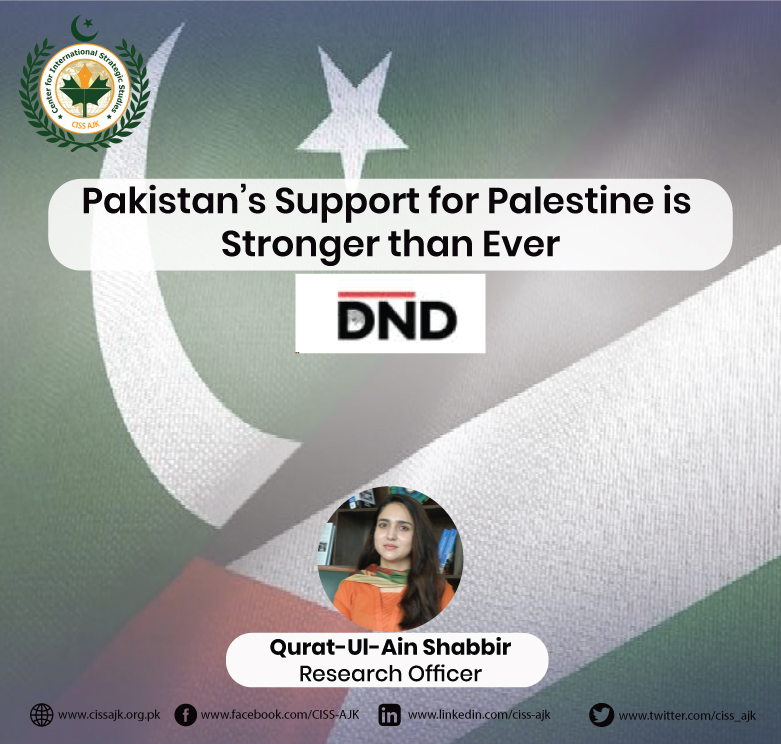529
Since its establishment in 1947, Pakistan has consistently voiced unwavering support for the Palestinian right to self-determination, steadfastly refusing to recognize Israel as a legitimate entity in the Levant and deeming it an occupying force. A notable figure in this stance is Pakistan’s inaugural foreign minister, Zafar Khan, who holds the unique distinction of having served as president of both the United Nations General Assembly and the International Court of Justice. During the crucial 1947 UN General Assembly debate on the future of Palestine and the subsequent adoption of Resolution 181 (II), this proposed partition with economic union, Khan, acting as Pakistan’s Permanent Representative to the UN, delivered a compelling speech against the partition. His powerful opposition to this divisive move is preserved in Walid Khalidi’s anthology, “From Haven to Conquest: Readings in Zionism and the Palestine Problem Until 1948,” earning him fond remembrance among Palestinians and others invested in these historical events.
Since partition, Pakistan has consistently guided its domestic and foreign policies by anti-colonialist and Muslim solidarity principles. The partition of India was not merely a geopolitical event but a symbolic acknowledgment of incompatibility, delineating territorial boundaries along communal lines. This perspective underscores the significant role of religious identity in shaping Pakistan’s foundational narrative, where Islam functions as a unifying force, defining its unique character in the South Asian context. Pakistan stance on Israel-Palestinian conflict has been heavily influenced by Pakistan’s Muslim identity.
In the aftermath of the 8th October Hamas attack, Pakistan, akin to many Muslim-majority nations worldwide, expressed verbal condemnation of Israel’s aggression against civilians in Gaza. However, the prevailing sentiment within Pakistan, reflective of much of its 75-year history, overwhelmingly sided with the Palestinians. Massive rallies in support of the Palestinian cause underscored public opinion in Pakistan. The caretaker PM of Pakistan also announced that no New Year celebrations would be held to mark the solidarity with Palestinians.
Indeed, there are robust sentiments within Pakistan in support of the Palestinian cause, and the Pakistani government is keenly aware of this sentiment. The country’s active social media campaigns to boycott US and Israel products highlight the strong alignment of Pakistanis with the Palestinian cause. Pakistan’s commitment to the Palestinian cause extends beyond rhetoric, as it had provided financial support to Palestinian governments and humanitarian aid to Palestinian civilians in the past. This dedication has been further underscored by a new aid package announced in the aftermath of Hamas attack on Israel on 8th October.
Pakistan faces a significant foreign policy challenge in the Middle East, primarily due to India’s burgeoning economic interdependence and robust diplomatic ties with Arab countries. Notably, India’s economic relationship with Saudi Arabia serves as a pertinent example. India’s trade with the Arab world has surged to an unprecedented annual figure exceeding $240 billion. Particularly, India has become the second-largest trading partner of Saudi Arabia, with their foreign trade reaching an all-time high of $52.75 billion in the fiscal year 2022-23.
Furthermore, Saudi Arabia holds the 18th position in Foreign Direct Investment (FDI) equity inflows into India, with a cumulative FDI amounting to US$ 3,154 million from April 2000 to September 2022. This substantial investment emphasizes the crucial role of Saudi Arabia as a key economic partner for India. The deepening economic ties between India and Arab countries create a complex diplomatic landscape for Pakistan in the Middle East, necessitating careful navigation of relationships and strategic considerations to safeguard its interests in the region.
With India being a strong economic power in the region, it is natural for Pakistan to look at possible options for economic defense cooperation in Middle East. For this reason Pakistan was looking at Arab countries engaged in the Abraham Accords, signaling a potential normalization of relations with Israel. Pakistan’s geographical proximity and historical dependence on Sunni Gulf countries, many of which were seeking warming relations with Israel following the Abraham Accords, presented an opportunity for indirect partnerships between Israel and Pakistan.
However, this also led to a complex dilemma for Pakistan, as its historical stance on the Palestine issue has been a cornerstone of its policy towards Israel. Even in 2020, when the accords were initiated, Pakistan maintained its stance of not recognizing Israel until the resolution of the Palestinian issue.
Recent developments have brought about significant changes in the diplomatic landscape for both Arab countries and Israel, particularly in the context of the desire for reconciliation evident in the Abraham Accords. However, these aspirations are encountering unexpected challenges, introducing complexities and shifts in diplomatic considerations for nations pursuing rapprochement with Israel. Pakistan, in light of its state and societal responses, remains unlikely to pursue diplomatic ties with Israel in the near or foreseeable future.
The connection between Pakistan’s ongoing struggle with India over the Kashmir issue and the Palestinian resistance against Israel’s occupation is delicate. Pakistan has consistently positioned itself as a champion of the right to self-determination. This interconnectedness underscores the complex diplomatic considerations that Pakistan faces in navigating its foreign policy.
Qurat-Ul-Ain Shabbir is a research officer at the Center for International Strategic Studies (CISS) AJK. Currently, she is pursuing her Ph.D. degree in DSS from Quaid-i-Azam University. Her areas of interest include comprehensive security and conflict analysis.

